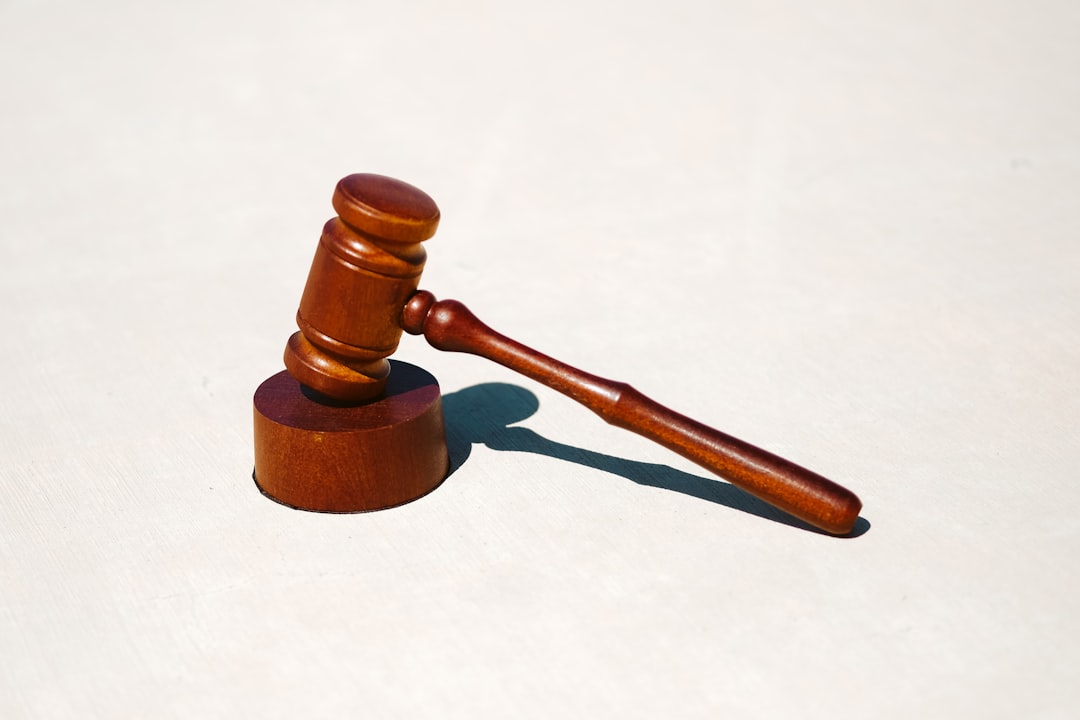North Dakota's Small Claims Court provides an accessible avenue for individuals to resolve disputes with spam call law firms, offering a cap of $10,000. Understanding the Telephone Consumer Protection Act (TCPA) is crucial for identifying unsolicited text messages as spam. Documenting evidence, including sender info and message content, is essential for proving TCPA violations. The court's process involves filing official forms, paying fees, and ensuring proper service for claims under $10,000. Consulting reputable spam call law firms North Dakota can guide individuals through this legal landscape, protecting privacy and seeking compensation for distress caused by unwanted texts.
“Unwanted spam texts can be frustrating, but they don’t have to go unchallenged. If you’re facing a barrage of unsolicited messages in North Dakota, understanding your legal options is crucial. This guide navigates the small claims court process for addressing spam calls, providing insights into the relevant laws and your rights as a recipient. From recognizing illegal practices to filing an effective claim, learn how to protect yourself and hold spam call law firms accountable within the framework of North Dakota’s legal system.”
Understanding Small Claims Court in North Dakota

Small Claims Court in North Dakota is a part of the state’s judicial system designed to provide efficient and accessible dispute resolution for citizens. It handles a wide range of civil matters, including those involving consumer rights and debt collection. If you’re facing issues with spam texts or unwanted calls from law firms, this court can offer a solution. The process is generally less formal than traditional court proceedings, allowing individuals to represent themselves without an attorney. This accessibility is especially beneficial for consumers navigating the complex landscape of Spam call law firms in North Dakota.
In North Dakota, small claims courts have jurisdiction over cases where the amount in dispute is $10,000 or less. For issues related to spam texts, this could include seeking compensation for harassment, invasion of privacy, or unfair business practices. Understanding your rights under these laws and knowing how to navigate Small Claims Court can empower you to take action against law firms engaging in inappropriate spam call activities.
When Spam Texts Cross the Line: Legal Definitions

In North Dakota, understanding what constitutes spam texts is crucial before considering legal action. The Telephone Consumer Protection Act (TCPA) defines unsolicited text messages as “spam” if they are sent to a phone number on a do-not-call list or if the sender doesn’t have prior express consent from the recipient. This law covers not just marketing messages but any unwanted texts, including those promoting goods, services, or even collecting debts.
Spam call law firms in North Dakota play a vital role in helping individuals navigate this legal landscape. They can advise clients on whether their experiences with spam texts violate the TCPA and guide them through the small claims court process if necessary. It’s essential to document each spam text received, including the sender’s information and the content of the message, as these details can be crucial in proving a violation of the law.
Your Rights as a Recipient of Unwanted Texts

As a recipient of unwanted text messages, especially those deemed as spam by the Federal Communications Commission (FCC), you possess specific rights under the Telephone Consumer Protection Act (TCPA) in North Dakota. This law firm is well-versed in the Spam Call laws and can guide you on how to exercise your options. Once you’ve received a spam text, you have the right to take action. First, document the messages by saving them along with the sender’s phone number. You can then contact the sender to stop further communications or file a complaint with the FCC if the messages continue despite your requests to be removed from their list.
Understanding your rights is crucial when dealing with spam texts. Legal firms specializing in Spam Call law in North Dakota can help you navigate these issues, ensuring your rights are protected and that you receive the appropriate compensation for any invasion of privacy or distress caused by unwanted text messages.
Navigating the Process: Filing a Claim in Small Claims Court

Navigating the legal process of filing a claim in Small Claims Court for spam texts can seem daunting, but with the right guidance, it is achievable. In North Dakota, the first step involves understanding the jurisdiction of the court and ensuring your claim falls within its limits. Typically, small claims courts handle disputes involving amounts below a certain threshold, which varies by state. For spam-related cases in North Dakota, this usually includes claims under $10,000.
Once you’ve confirmed eligibility, the next step is to prepare and file your claim with the appropriate court. This process typically requires completing and submitting official forms, providing detailed information about the case, and paying a filing fee. The court will then issue a summons, which notifies the defendant of the pending action. Effective service of this summons is crucial for moving forward with your case.
Common Pitfalls and Effective Strategies for Success

Navigating Small Claims Court for Spam Texts can be challenging, but with the right strategies, success is achievable. One of the common pitfalls is failing to understand the specific spam call law in North Dakota. Many people assume that all unsolicited calls are illegal, but there are exceptions and nuances to the rules. It’s crucial to familiarize yourself with the state’s Telephone Consumer Protection Act (TCPA) regulations to ensure your case has merit.
Another pitfall is not documenting evidence effectively. Keep detailed records of the spam texts, including dates, times, content, and any interactions you had in response. Preserve these records as they can significantly strengthen your case. Effective strategies for success include proactively gathering evidence, understanding legal precedents related to spam calls, and consulting with reputable North Dakota spam call law firms for expert guidance. These steps will help level the playing field and increase your chances of a favorable outcome.






